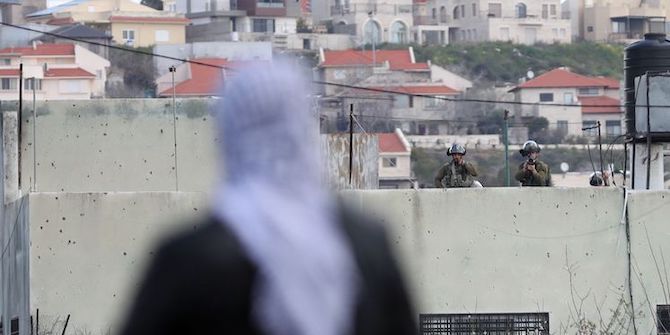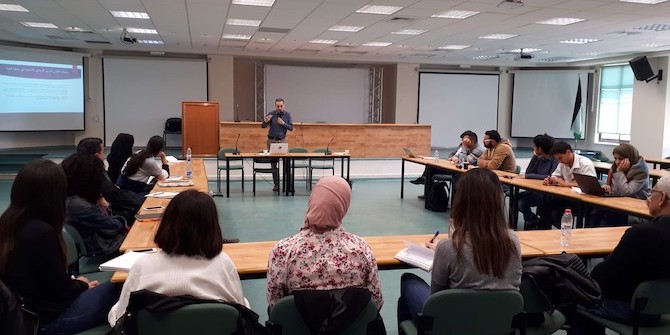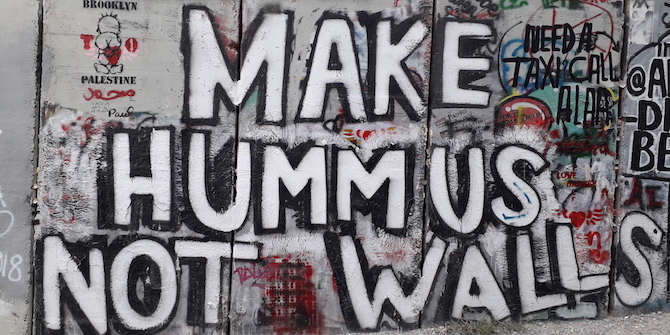by Dana AlOrainan

From the Nakba in 1948 to the eve of Hamas’ attacks on 7 October, the Palestinian conflict has gone somewhat overlooked by Western discourse, as Palestinians continue to face constant and consistent oppression, displacement, and colonialism by Israel. Recently, however, the Hamas attacks of 7 October have opened up a controversial global discourse concerning the legitimacy of the State of Palestine.
Universities have always been centers of political activism, where many students rally and protest over issues of social justice and human rights. Many university students across the United States and the United Kingdom have passionately joined the discourse on the genocide taking place in Palestine, despite it being an issue in a far jurisdiction. A fairly recent phenomenon, perhaps following in the footsteps of Columbia University students in the United States, students began setting up Pro-Palestine encampments on various university campuses across the West. Acknowledging the role that many Western universities play in funding the genocide, these encampments aim to serve as centers of resistance until the students’ demands are met. The most notable demand being towards university administrations to cut all ties that go towards funding the genocide in Palestine. The encampments also serve as a center for solidarity for those most affected by the genocide, most notably the Palestinian students and other Arab students who have come to study abroad in Western universities, who felt alienated, targeted, and frustrated knowing that the educational institution they pay a tuition to indirectly or directly funds a genocide in the Middle East. The encampments also aim to raise awareness and educate individuals about the atrocities occurring in the West Bank and Gaza, as lacking knowledge regarding the conflict is no longer an acceptable excuse.
Among the various tents set up for those who choose to spend their nights in these encampments, many of them set up libraries to educate inquisitors about the Palestinian conflict, Kiffiyehs (traditional Middle Eastern scarf), and student-made posters, with the most popular slogan being ‘you are now entering a free *insert university/campus building name*’symbolising that the encampment is a safe space for those who condemn the genocide and do not wish to participate in its funding in any way.
Like all forms of activism and public demonstrations, the pro-Palestine encampments did not come without their challenges. Many university administrators chose to act in a hostile manner towards these pro-Palestine protesters, set-minded on eradicating the encampments to avoid being pressured into policy changes that mostly affect their capital, and to avoid further controversy from the media. Many liberal universities, such as Columbia University, aim to paint a picture of being ‘inclusive’ and aligning with core aspects of human rights and social justice, which is all a hypocritical ruse, for when their morals truly are tested, they tend to retaliate, proving that their stance has always been whichever side matches their source of capital’s politics. Many students have been threatened with expulsion by these prestigious institutions, in fact, many were indeed expelled across various universities, most notably Columbia University, Harvard University, and UC Irvine, all due to their protest. US politician Ilhan Omar’s daughter, Isra Hisri, has been expelled from Columbia University. Even further, in some cases, students are met with police evictions from their university encampments, such as in the case of the University of Oxford.
So, what motivates these students to proceed in passionate protest and continue to show up on their encampments and pressure university policies daily, despite the major academic and non-academic repercussions they may face? And what does this imply for the future of Palestine and the Middle East? The United States and the United Kingdom are the two most notable powers behind funding almost every major catastrophe in the Middle East. Students across the world, especially the American and British pro-Palestine protesters have finally come to realise their country’s major role in the destruction of the Middle East. With privileged and powerful students, such as Ilhan Omar’s daughter, passionately in solidarity with Palestine fighting to end their university’s funding of the genocide in Palestine, if their passions continue to erupt into their careers as possible future policy makers, leaders, and politicians, this implies a bright future for the Middle East and Palestine, specifically. We are experiencing a generational shift in the global west, where a generation who valued profit over people above all else, seems, now more than ever, more likely to be replaced with a generation of passionate and driven humanitarians, advocates, and activists.
[To read more on this and everything Middle East, the LSE Middle East Centre Library is now open for browsing and borrowing for LSE students and staff. For more information, please visit the MEC Library page.]






